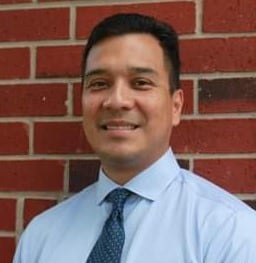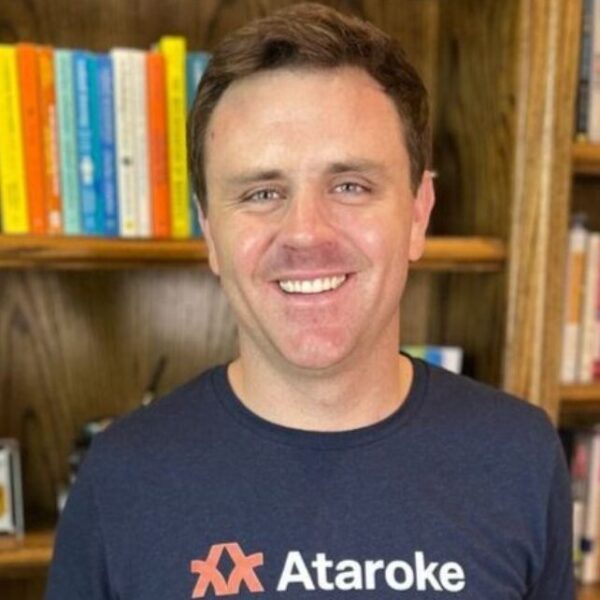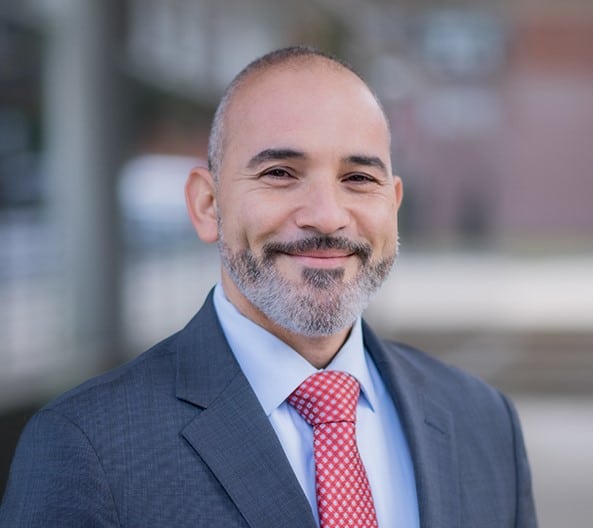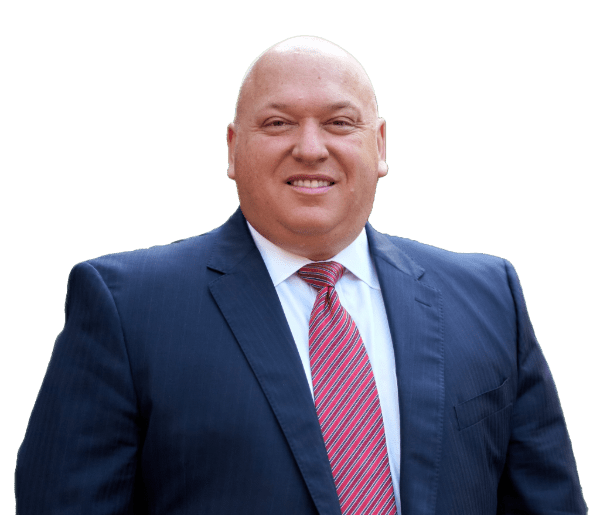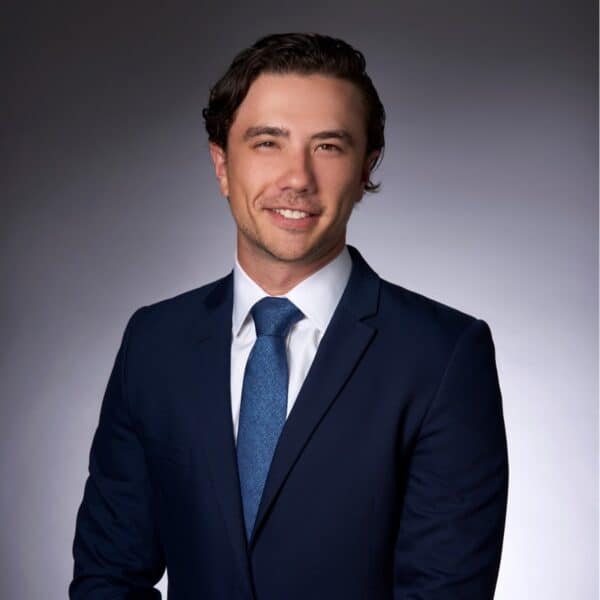
Find financial advisors specializing in serving healthcare professionals who are ready to help with your financial planning needs so you can enjoy life more with less money stress.
As a healthcare professional, you may be thinking about hiring a financial advisor who understands the unique financial planning challenges and opportunities of doctors, nurses, hospital staff employees, and private practice administrators. Fortunately, an increasing number of financial advisors specialize in serving healthcare workers.
Before hiring a financial advisor, it’s important to first consider your own financial planning priorities. In this guide, we’ll share a few quick tips to help you get started in your search and introduce you to financial advisors featured on Wealthtender you may want to add to your shortlist.
Table of contents
Get to Know Financial Advisors for Healthcare Professionals
📍 Click on a pin in the map view below for a preview of financial advisors who specialize in serving healthcare professionals and can help you reach your money goals with a personalized plan. Or choose the grid view to search our directory of financial advisors with additional filtering options.
📍Double-click or pinch pins to view more.
Occupational Outlook for U.S. Healthcare Professionals
According to the US Bureau of Labor Statistics, overall employment in healthcare occupations is projected to grow 13 percent from 2021 to 2031, much faster than the average for all occupations; this increase is expected to result in about 2 million new jobs over the decade. In addition to new jobs from growth, opportunities arise from the need to replace workers who leave their occupations permanently. About 1.9 million openings each year, on average, are projected to come from growth and replacement needs.
The median annual wage for healthcare practitioners and technical occupations (such as registered nurses, physicians and surgeons, and dental hygienists) was $75,040 in May 2021, which was higher than the median annual wage for all occupations of $45,760; healthcare support occupations (such as home health and personal care aides, occupational therapy assistants, and medical transcriptionists) had a median annual wage of $29,880 in May 2021, which was lower than the median annual wage for all occupations.
ASK THE EXPERT
Q: If you had one piece of financial planning advice you wish all doctors learned before starting medical school, what would it be?

These can be difficult times for physicians. Most are earning a fraction of what they will earn after graduation, incurring substantial student loan debt, and working long hours. The key is to establish a base financial plan that we call “ICU”.
Income – Protect your income as it’s your greatest asset and obtain the maximum disability coverage available. If someone relies on you for income then get a term insurance policy. Forget about permanent insurance products as they can be very expensive and will rarely meet your needs.
Cash – You need access to cash in the event of an emergency. Put at least three months’ worth of expenses in an online money market account. Most pay over 10x the national average rate and have no fees.
Understand your student loans – Your federal student loans can potentially qualify for forgiveness. Before you refinance see if you qualify for loan forgiveness and plan accordingly. We recently worked with one physician who stands to have over $100,000 of debt forgiven.
Brett Tushingham, CFP® | Farther
View Specific Healthcare Occupations and Median Pay
The following details provided by the US Bureau of Labor Statistics indicate the entry-level education typically required for several popular healthcare occupations, along with the 2021 median pay in the far right column.
| Occupation | Job Summary | Entry-Level Education | |
| Athletic Trainers | Athletic trainers specialize in preventing, diagnosing, and treating muscle and bone injuries and illnesses. | Master’s degree | $48,420 |
| Audiologists | Audiologists diagnose, manage, and treat patients who have hearing, balance, or related problems. | Doctoral or professional degree | $78,950 |
| Chiropractors | Chiropractors treat patients with health problems of the neuromusculoskeletal system, which includes nerves, bones, muscles, ligaments, and tendons. | Doctoral or professional degree | $75,000 |
| Clinical Laboratory Technologists and Technicians | Clinical laboratory technologists and technicians collect samples and perform tests to analyze body fluids, tissue, and other substances. | Bachelor’s degree | $57,800 |
| Dental Assistants | Dental assistants provide patient care, take x rays, keep records, and schedule appointments. | Postsecondary nondegree award | $38,660 |
| Dental Hygienists | Dental hygienists examine patients for signs of oral diseases, such as gingivitis, and provide preventive care, including oral hygiene. | Associate’s degree | $77,810 |
| Dentists | Dentists diagnose and treat problems with patients’ teeth, gums, and related parts of the mouth. | Doctoral or professional degree | $163,220 |
| Dietitians and Nutritionists | Dietitians and nutritionists plan and conduct food service or nutritional programs to help people lead healthy lives. | Bachelor’s degree | $61,650 |
| EMTs and Paramedics | Emergency medical technicians (EMTs) and paramedics respond to emergency calls, performing medical services and transporting patients to medical facilities. | Postsecondary nondegree award | $36,930 |
| Exercise Physiologists | Exercise physiologists develop fitness and exercise programs that help injured or sick patients recover. | Bachelor’s degree | $47,940 |
| Genetic Counselors | Genetic counselors assess individual or family risk for a variety of inherited conditions, such as genetic disorders and birth defects. | Master’s degree | $80,150 |
| Health Information Technologists and Medical Registrars | Health information technologists and medical registrars advise organizations on computerized healthcare systems and analyze clinical data. | Associate’s degree | $55,560 |
| Home Health and Personal Care Aides | Home health and personal care aides monitor the condition of people with disabilities or chronic illnesses and help them with daily living activities. | High school diploma or equivalent | $29,430 |
| Licensed Practical and Licensed Vocational Nurses | Licensed practical nurses (LPNs) and licensed vocational nurses (LVNs) provide basic nursing care. | Postsecondary nondegree award | $48,070 |
| Massage Therapists | Massage therapists treat clients by using touch to manipulate the muscles and other soft tissues of the body. | Postsecondary nondegree award | $46,910 |
| Medical Assistants | Medical assistants complete administrative and clinical tasks in hospitals, offices of physicians, and other healthcare facilities. | Postsecondary nondegree award | $37,190 |
| Medical Records Specialists | Medical records specialists compile, process, and maintain patient files. | Postsecondary nondegree award | $46,660 |
| Medical Sonographers and Cardiovascular Technologists and Technicians | Diagnostic medical sonographers and cardiovascular technologists and technicians, including vascular technologists operate special imaging equipment to create images or to conduct tests. | Associate’s degree | $75,380 |
| Medical Transcriptionists | Medical transcriptionists listen to voice recordings that physicians and other healthcare workers make and convert them into written reports. | Postsecondary nondegree award | $30,100 |
| Nuclear Medicine Technologists | Nuclear medicine technologists prepare and administer radioactive drugs for imaging or treatment. | Associate’s degree | $78,760 |
| Nurse Anesthetists, Nurse Midwives, and Nurse Practitioners | Nurse anesthetists, nurse midwives, and nurse practitioners coordinate patient care and may provide primary and specialty healthcare. | Master’s degree | $123,780 |
| Nursing Assistants and Orderlies | Nursing assistants provide basic care and help patients with activities of daily living. Orderlies transport patients and clean treatment areas. | See How to Become One | $30,290 |
| Occupational Health and Safety Specialists and Technicians | Occupational health and safety specialists and technicians collect data on and analyze many types of work environments and work procedures. | See How to Become One | $74,870 |
| Occupational Therapists | Occupational therapists treat patients who have injuries, illnesses, or disabilities through the therapeutic use of everyday activities. | Master’s degree | $85,570 |
| Occupational Therapy Assistants and Aides | Occupational therapy assistants and aides help patients develop, recover, improve, as well as maintain the skills needed for daily living and working. | See How to Become One | $61,520 |
| Opticians | Opticians help fit eyeglasses and contact lenses, following prescriptions from ophthalmologists and optometrists. | High school diploma or equivalent | $37,570 |
| Optometrists | Optometrists diagnose and treat visual problems and manage diseases, injuries, and other disorders of the eyes. | Doctoral or professional degree | $124,300 |
| Orthotists and Prosthetists | Orthotists and prosthetists design and fabricate medical supportive devices and measure and fit patients for them. | Master’s degree | $75,440 |
| Pharmacists | Pharmacists dispense prescription medications to patients and offer expertise in the safe use of prescriptions. | Doctoral or professional degree | $128,570 |
| Pharmacy Technicians | Pharmacy technicians help pharmacists dispense prescription medication to customers or health professionals. | High school diploma or equivalent | $36,740 |
| Phlebotomists | Phlebotomists draw blood for tests, transfusions, research, or blood donations. | Postsecondary nondegree award | $37,380 |
| Physical Therapist Assistants and Aides | Physical therapist assistants and aides are supervised by physical therapists to help patients regain movement and manage pain after injuries and illnesses. | See How to Become One | $49,180 |
| Physical Therapists | Physical therapists help injured or ill people improve movement and manage pain. | Doctoral or professional degree | $95,620 |
| Physician Assistants | Physician assistants practice medicine on teams with physicians, surgeons, and other healthcare workers. | Master’s degree | $121,530 |
| Physicians and Surgeons | Physicians and surgeons diagnose and treat injuries or illnesses and address health maintenance. | Doctoral or professional degree | This wage is equal to or greater than $208,000 per year. |
| Podiatrists | Podiatrists provide medical and surgical care for people with foot, ankle, and lower leg problems. | Doctoral or professional degree | $145,840 |
| Psychiatric Technicians and Aides | Psychiatric technicians and aides care for people who have mental illness and developmental disabilities. | See How to Become One | $36,230 |
| Radiation Therapists | Radiation therapists administer doses of radiation to patients who have cancer or other serious diseases. | Associate’s degree | $82,790 |
| Radiologic and MRI Technologists | Radiologic technologists perform diagnostic imaging examinations on patients. MRI technologists operate magnetic resonance imaging (MRI) scanners to create diagnostic images. | Associate’s degree | $61,980 |
| Recreational Therapists | Recreational therapists plan, direct, and coordinate recreation-based treatment programs for people with disabilities, injuries, or illnesses. | Bachelor’s degree | $47,940 |
| Registered Nurses | Registered nurses (RNs) provide and coordinate patient care and educate patients and the public about various health conditions. | Bachelor’s degree | $77,600 |
| Respiratory Therapists | Respiratory therapists care for patients who have trouble breathing—for example, because of a chronic condition such as asthma. | Associate’s degree | $61,830 |
| Speech-Language Pathologists | Speech-language pathologists assess, diagnose, treat, and help to prevent communication and swallowing disorders in children and adults. | Master’s degree | $79,060 |
| Surgical Assistants and Technologists | Surgical assistants and technologists help with surgical operations. | Postsecondary nondegree award | $48,510 |
| Veterinarians | Veterinarians care for the health of animals and work to protect public health. | Doctoral or professional degree | $100,370 |
| Veterinary Assistants and Laboratory Animal Caretakers | Veterinary assistants and laboratory animal caretakers handle routine animal care and help scientists, veterinarians, and others with their daily tasks. | High school diploma or equivalent | $29,780 |
| Veterinary Technologists and Technicians | Veterinary technologists and technicians do medical tests that help diagnose animals’ injuries and illnesses. | Associate’s degree | $36,850 |
How Much Does a Financial Advisor Cost?
➡️ How Much Does a Financial Advisor Cost? Read the Article
Smart Tips for Finding a Financial Advisor for Healthcare Professionals
Before hiring a financial advisor, here are a few quick tips to help you find the best advisor for you.
1. Decide Which Services You Need
Before hiring an advisor, determine what services you need from them. Whether it’s full-service investment management or a plan focused on a specific area of your finances, put together a list of what you’d like help with before contacting an advisor.
Though most people use a financial planner simply to invest for retirement, this is only a small part of what many advisors offer. Here’s a quick rundown of potential services a financial advisor may offer you:
- Budgeting and money management
- Debt management
- Insurance planning
- Retirement planning
- Other investment planning
- Inheritance planning
- Estate planning
- Tax planning
As you can see, financial advisors can help you with your entire financial picture, not just investing. As you start to plan for life’s bigger milestones, you should consider finding a financial advisor that specializes in those areas.
Finding the right advisor can help you minimize risk, maximize gains and take advantage of tax breaks while investing for your future. They can also help you protect your assets with the right kinds of insurance and help you pass on your financial legacy with a proper estate plan.
2. Consider Your Budget and Payment Preferences
Once you have a list of services you would like, review the fee structures financial advisors offer. Finding a balance between the services you need and the cost of those services will help narrow down the field of advisors you may want to work with.
If you are looking for a full-service advisor to manage all of your investments, consider searching among fee-based financial advisors. If you want to manage your money yourself, consider the flat fee and monthly subscription advisors for ongoing support.
3. Interview Multiple Financial Advisors
Once you have chosen the services and fee structure you prefer, it’s time to contact a few advisors and interview them. Here are questions to ask financial advisors:
- What services do you provide?
- What are all the ways you get paid? (fee transparency)
- What is your investment strategy?
- How do you measure investment performance?
- How do we communicate about my plan?
Interview multiple advisors to get a feel for who you want to work with. A combination of fees, services, and customer service will help you determine the best fit for your financial advice.
4. Review Financial Advisor Credentials
Once you find an advisor (or two) you feel comfortable with, it’s always a good practice to check their credentials and the firm’s details. You can do this at the Investment Adviser Public Disclosure (IAPD) website.
You can check both the individual and the firm to view their background and experience details, as well as any disciplinary action taken against them or their firm.
As licensed financial professionals, there is oversight into how financial advisors conduct business, so running a quick (free) check on them is recommended.
For additional information about advisor credentials, read our article to learn the most popular designations held by financial advisors, as well as specialized credentials which may be important to consider if you have unique financial planning needs.
🙋♀️ Have Questions About Financial Planning for Healthcare Professionals?
Frequently Asked Questions & Additional Resources
How do I know if I’m ready to hire a financial advisor?
You should strongly consider hiring a financial advisor if you have a significant amount of money available for saving or investing. This could occur after years of making annual contributions to a retirement plan like a 401(k) through your employer or suddenly if you receive a large inheritance or sell your house for a large profit.
But even if you don’t have a lot of money saved, many financial advisors and planners provide reasonable pricing options and valuable services you should consider, especially if you’re facing a significant life event. For example, if you’re starting a new job, getting married, starting a family, getting divorced, lost your job, starting or selling a business, or approaching retirement age, working with a trusted financial advisor or planner may prove worthwhile.
Before I hire a new financial advisor, should I fire my current advisor?
You don’t need to fire your current advisor before beginning your search for a new financial advisor. In fact, your new advisor can help coordinate the transition of your assets from your previous financial advisor.
Where can I read reviews about financial advisors written by their clients to help me decide if I should hire them?
After 60 years of regulatory prohibition of financial advisor reviews in the US, a rule issued by the Securities and Exchange Commission (SEC) became effective on May 4, 2021 that means both financial advisors and directory websites that help consumers search for a financial advisor can collect and display financial advisor reviews, an important factor worth considering when choosing who you’ll hire to manage your investments and life savings.
Wealthtender is the first independent advisor review platform designed to be fully compliant with the new SEC rule, and we look forward to helping you evaluate financial advisors based on reviews written by their clients.
I’m a financial advisor interested in being featured in this guide. How do I get started?
Thanks for your interest. We look forward to learning more about your practice and helping you attract your ideal clients where you may be a good fit based on their individual needs and circumstances. Please click here to learn how you can join local financial advisors featured on Wealthtender.
About the Author

About the Author
Brian Thorp
Brian is CEO and founder of Wealthtender and Editor-in-Chief. He and his wife live in Austin, Texas. With over 25 years in the financial services industry, Brian is applying his experience and passion at Wealthtender to help more people enjoy life with less money stress. Learn More about Brian




